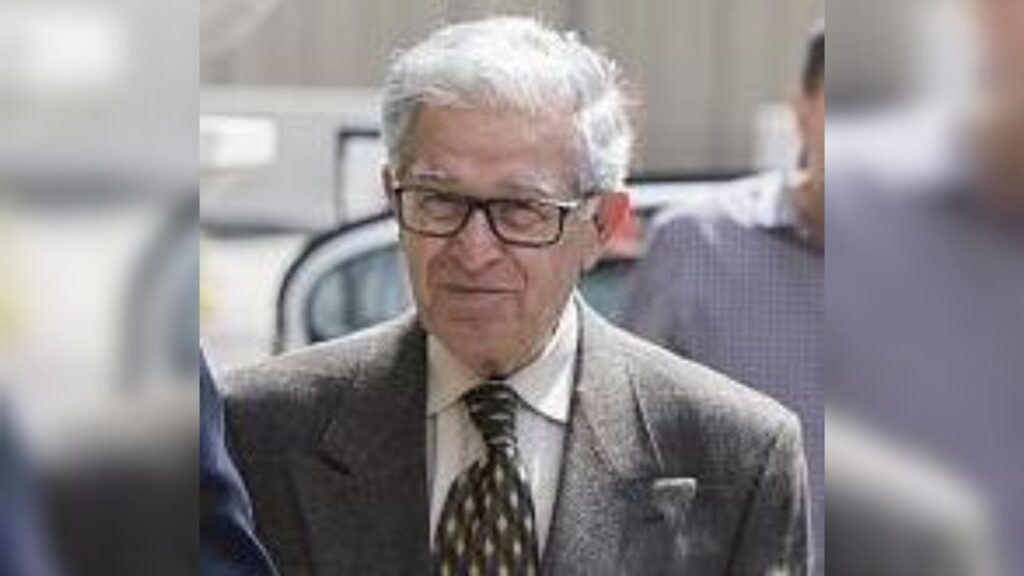Vural Avar, one of a group of retired generals who were imprisoned last year due to their role in a military intervention in Turkey in 1997, known as the Feb. 28 post-modern coup, died in his sleep in prison last night, local media reported on Tuesday.
Avar, 85, was being held in Ankara’s Sincan Prison despite health problems, according to reports. It was previously announced that he had dementia that had progressed and that he had cracked his ribs after a fall in the prison bathroom on Oct. 30.
Avar’s passing was announced on social media by journalist Barış Terkoğlu, who offered his condolences and said he was sorry that nothing could have been done to end “this persecution.”
28 Şubat kumpası davasında, sağlık sorunlarına rağmen cezaevinde tutulan 85 yaşındaki emekli Korgeneral Vural Avar, dün gece uykuda hayatını kaybetti. Hepimizin başı sağ olsun.
Gücümüz bu zülmü bitirmeye yetmediği için çok üzgünüm.
Vural Paşa'nın öyküsü:https://t.co/6TNAa4OFuX— Barış Terkoğlu (@baristerkoglu) December 20, 2022
“I am really sad. This is called ‘tyranny,’ ‘murder’ by the hand of the law! We will never forgive, we will never forget,” lawyer Hüseyin Ersöz said in a tweet.
Çok üzgünüm. Bunun ismi “zulümdür”, hukuk eliyle “cinayettir”! Asla affetmeyeceğiz, unutmayacağız. Hukuk Tarihinde kara bir leke olarak anılacaksınız! Ailesine başsağlığı diliyorum. Işıklar içinde uyusun! #VuralAvar https://t.co/Wv5q6hMzss
— Hüseyin Ersöz (@ersozhuseyin) December 20, 2022
The Ankara 5th High Criminal Court issued its final judgment on July 13, 2018, sentencing Avar and 13 former generals to life in prison on charges of forming criminal associations to overthrow the government and acquitting 68 defendants.
The Supreme Court of Appeals upheld the life sentences handed down to the 14 defendants in July 2021, and warrants were issued for the arrest of the former generals in August of the same year.
The retired generals were also stripped of their rank.
The trial concerned the military intervention of Feb. 28, 1997, often described as a “postmodern coup,” which did not result in direct military rule but forced the late Prime Minister Necmettin Erbakan to resign after the National Security Council (MGK) issued a memorandum.
The bloodless “postmodern” coup is famous for having deposed the head of government after tanks paraded on the outskirts of Ankara and Erbakan was given an ultimatum.
Because the Islamist Erbakan-led government was forced out without the dissolution of parliament or the suspension of the constitution, the event was labeled a “postmodern coup” by members of the military involved in the process.
Erbakan resigned four months later, while his conservative Welfare Party (RP) and its successor, the Virtue Party (FP), were both banned by the Constitutional Court in January 1998 and June 2001, respectively. Erbakan, who died in 2011, pioneered Islamist politics in Turkey, a Muslim country with a secular state system, paving the way for the later success of current President Recep Tayyip Erdoğan’s Justice and Development Party (AKP). Erdoğan was also involved in politics under Erbakan’s party and was elected mayor of İstanbul in 1994.
Turkey saw violent coups in 1960 and 1980, but under Erdoğan, who survived an abortive putsch in 2016, the political strength of the military has been drastically curtailed.

